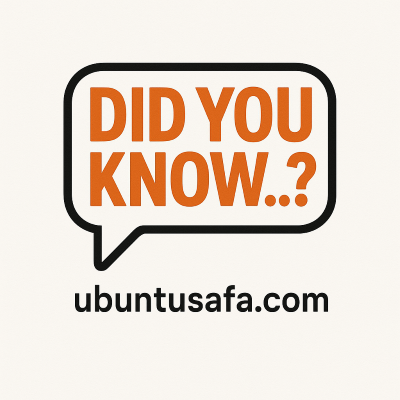“The riches of Africa were never gone; they were taken.” How and by who...?
That’s a powerful statement, and it captures a core truth about Africa’s history and present challenges.
Africa’s wealth — in gold, diamonds, minerals, oil, and other resources — has been abundant for millennia.
Yet, much of this wealth never stayed in Africa because it was systematically extracted and exploited by external forces, primarily European colonial powers and, more recently, multinational corporations.
How the riches were taken:
Colonial Conquest and Exploitation
During the late 19th and early 20th centuries — the “Scramble for Africa” — European powers invaded and divided Africa with little regard for its people or borders. Colonial regimes:
Controlled land, mines, and labor forces
Extracted vast amounts of raw materials (gold, diamonds, rubber, copper, oil)
Enforced forced labor, taxation, and monopolies to enrich European economies
Built infrastructure (railways, ports) mainly to export resources, not to develop local economies
Slave Trade and Human Capital Theft
For centuries before formal colonization, millions of Africans were forcibly taken via the transatlantic slave trade:
Africa lost a significant portion of its young, able population
The continent’s demographic and economic development was deeply disrupted
The wealth generated by slave labor fueled Western economies
Post-Colonial Neo-Colonialism
Even after independence, many African nations faced continued economic control through:
Unequal trade agreements favoring foreign companies
Structural adjustment programs imposed by the IMF and World Bank, forcing austerity and privatization
Multinational corporations extracting resources with minimal benefits to local communities
Corrupt elites sometimes collaborating with foreign interests
Illicit Financial Flows and Tax Evasion
Hundreds of billions of dollars leave Africa annually through illegal channels, tax dodging, and corrupt deals
This capital flight drains resources needed for development and poverty reduction
Who took Africa’s riches?
European Colonial Powers: Britain, France, Belgium, Portugal, Germany, Italy, Spain
Slave Traders: European and Arab traders who ran the transatlantic and trans-Saharan slave trades
Multinational Corporations: Mining, oil, and agricultural companies headquartered mostly in Western countries and increasingly China
Foreign Governments and Financial Institutions: IMF, World Bank, and foreign investors influencing policies and economies
Local Elites and Corrupt Officials: Sometimes complicit in siphoning wealth for personal gain
The Legacy Today-
-Africa remains incredibly rich in natural resources but faces:
-Poverty and underdevelopment in many regions
-Economic dependency and weak industrialization
-Struggles to regain control over resources and fair trade
-Movements for debt cancellation, resource sovereignty, and economic justice
-Quote for Reflection
“Africa’s wealth was never stolen by chance — it was taken by design.”
— Voices for Justice
That’s a powerful statement, and it captures a core truth about Africa’s history and present challenges.
Africa’s wealth — in gold, diamonds, minerals, oil, and other resources — has been abundant for millennia.
Yet, much of this wealth never stayed in Africa because it was systematically extracted and exploited by external forces, primarily European colonial powers and, more recently, multinational corporations.
How the riches were taken:
Colonial Conquest and Exploitation
During the late 19th and early 20th centuries — the “Scramble for Africa” — European powers invaded and divided Africa with little regard for its people or borders. Colonial regimes:
Controlled land, mines, and labor forces
Extracted vast amounts of raw materials (gold, diamonds, rubber, copper, oil)
Enforced forced labor, taxation, and monopolies to enrich European economies
Built infrastructure (railways, ports) mainly to export resources, not to develop local economies
Slave Trade and Human Capital Theft
For centuries before formal colonization, millions of Africans were forcibly taken via the transatlantic slave trade:
Africa lost a significant portion of its young, able population
The continent’s demographic and economic development was deeply disrupted
The wealth generated by slave labor fueled Western economies
Post-Colonial Neo-Colonialism
Even after independence, many African nations faced continued economic control through:
Unequal trade agreements favoring foreign companies
Structural adjustment programs imposed by the IMF and World Bank, forcing austerity and privatization
Multinational corporations extracting resources with minimal benefits to local communities
Corrupt elites sometimes collaborating with foreign interests
Illicit Financial Flows and Tax Evasion
Hundreds of billions of dollars leave Africa annually through illegal channels, tax dodging, and corrupt deals
This capital flight drains resources needed for development and poverty reduction
Who took Africa’s riches?
European Colonial Powers: Britain, France, Belgium, Portugal, Germany, Italy, Spain
Slave Traders: European and Arab traders who ran the transatlantic and trans-Saharan slave trades
Multinational Corporations: Mining, oil, and agricultural companies headquartered mostly in Western countries and increasingly China
Foreign Governments and Financial Institutions: IMF, World Bank, and foreign investors influencing policies and economies
Local Elites and Corrupt Officials: Sometimes complicit in siphoning wealth for personal gain
The Legacy Today-
-Africa remains incredibly rich in natural resources but faces:
-Poverty and underdevelopment in many regions
-Economic dependency and weak industrialization
-Struggles to regain control over resources and fair trade
-Movements for debt cancellation, resource sovereignty, and economic justice
-Quote for Reflection
“Africa’s wealth was never stolen by chance — it was taken by design.”
— Voices for Justice
3 months ago

